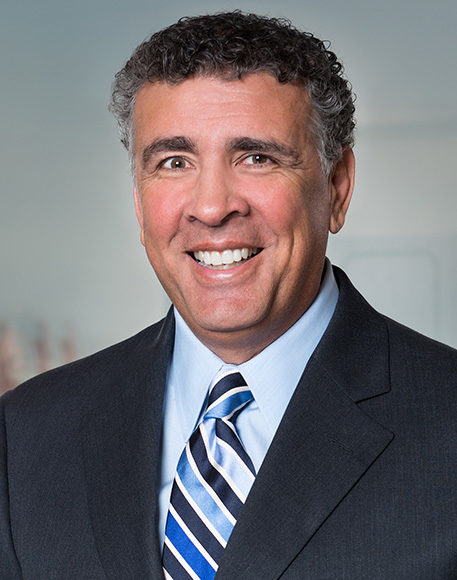What to Do When You Suspect a Loved One is Being Medicated Incorrectly
 When you visit a loved one in a nursing home or other assisted living facility, you may notice that something feels “off.” Maybe they’re unexpectedly drowsy, previously controlled health issues are worsening, or they are suddenly confused or otherwise not themselves. While changes are inevitable as we age, these changes aren’t always the result of the aging process—they can be signs of medication errors. Medication errors are typically preventable, and when they aren’t addressed, they can lead to serious harm.
When you visit a loved one in a nursing home or other assisted living facility, you may notice that something feels “off.” Maybe they’re unexpectedly drowsy, previously controlled health issues are worsening, or they are suddenly confused or otherwise not themselves. While changes are inevitable as we age, these changes aren’t always the result of the aging process—they can be signs of medication errors. Medication errors are typically preventable, and when they aren’t addressed, they can lead to serious harm.
Although medication errors are preventable, they are also fairly common. They range from missed doses and wrong dosages to incorrect medications and intentional overmedication. If you believe your loved one has been improperly medicated, it’s time to take action and protect them. Call Garcia & Coman to discuss your next steps.
Watch for red flags
You know your loved one better than anyone else, and while changes in health are to be expected throughout their time in a nursing home, you can follow your intuition when something seems wrong or isn’t in line with how they typically act. Common red flags include:
- Sudden confusion and forgetfulness
- Extreme drowsiness and unresponsiveness
- New or escalating agitation, aggression, and anxiety
- Sudden increase in falls or loss of balance
- Inconsistent amounts and types of medications given when you are present
- Unexplained injuries and ER trips
It’s important to note that these symptoms don’t always indicate medication errors; they can also be the result of a new health condition, side effects from a properly prescribed and administered medication, or declining health in general. However, these signs are worth investigating and documenting. Write down what you’ve observed, including dates, times, and who was present at the time.
Ask questions and request records.
Any nursing home that cares about its patients knows that family members will have questions and concerns—and they should be willing to answer them. It’s important to be assertive but respectful—badgering or implying bad faith can shut down potential channels of communication and make it harder for you to get the information you need.
If you’re not legally entitled to your loved one’s medical records or information, you may need to connect with their next of kin to express your concerns and find out if they can get the necessary information. Questions that may be helpful to ask include:
- What medications has my loved one been prescribed?
- Who administers these medications and on which schedule?
- Have there been any recent changes in administration method, dosage, or schedule?
- Can I see the Medication Administration Record?
The Medication Administration Record (or MAR) is an important document that tracks which medications are given, when, by which method, and by whom. A thorough review of the Medication Administration Record may uncover discrepancies in when medications are given, which dosages are given, or other areas of concern.
Report concerns internally first
First, you should report the issue internally, unless there is an immediate emergency. Notify the facility by reaching out to the charge nurse or the Director of Nursing. After talking to them in person or over the phone, follow up with a request in writing. You can ask for an incident report or ask to set up a meeting to discuss your loved one’s care plan.
Your concern should be documented in your loved one’s patient file. This ensures that if there are further concerns, there’s proof of your attempts to address the issue.
In addition to connecting with the care facility to discuss your issues, you may want to reach out to your loved one’s prescribing physician to ask for help. They can tell you if there are any symptoms to watch out for or any long-term effects caused by the error.
Document everything
Throughout this process, it’s important to put everything in writing. This makes it easier to refer back to past issues, side effects, or concerning symptoms. Maintain this documentation even if the care facility resolves the issue. If it happens again, you’ll be able to look for common factors between the two episodes.
Contact outside authorities
Ideally, the care facility will respond appropriately and take steps to ensure that the nursing home medication error never happens again. However, you may run into resistance or attempts to cover up what happened. When this happens, you should act quickly to get outside authorities involved. If a facility is worried about losing its license or having a history of patient care issues uncovered, it may take steps to cover up patient care reports, destroy evidence, or silence those who would otherwise speak up. You may want to reach out to your state’s Department of Health or Adult Protective Services to report the issue and request further assistance.
Reach out to a nursing home abuse attorney
A nursing home abuse attorney should be your next call. If your loved one suffered serious physical harm, was hospitalized, or will face long-term issues due to a medication error, they may be entitled to compensation. They deserve to feel safe at their living facility, and when a facility falls short, they must be held accountable.
That’s where we step in to help. At Garcia & Coman, we advocate for nursing home abuse victims throughout the United States. Let’s talk about what your loved one has gone through and how we can help. Call us today or reach out online to schedule a free case review.

Stephen M. Garcia represents victims of elder and nursing home abuse and is known as one of the leading civil litigators in the country. He is Senior Partner at Garcia & Coman, where the firm’s practice is focused on elder abuse, nursing home abuse, and wrongful death of the elderly.
Find out more about Stephen M. Garcia

